
Noel Hendrickson/Blend Images/Getty Images
Drinking enough water on a high-fiber diet is as important to your health as the fiber itself. Water keeps you hydrated, prevents constipation and softens your stools, allowing them to pass through your colon without excessive pressure. Because fiber absorbs water, you may need to increase your water intake on a high-fiber diet. However, your fluid needs may vary according to your activity level, health status and environmental conditions.
Significance
Most of the dietary fiber in the fruits, vegetables, legumes and whole grains that you eat passes through your digestive system without being absorbed. As fiber moves through your digestive tract, facilitating the removal of wastes, it forms a bulky mass. Much of the fluid from this mass is withdrawn in your colon for use by your body. If your water intake is too low, your stools may be dry, and bowel movements may become difficult and painful.
Recommendations
The Institute of Medicine recommends that women should drink 91 ounces of water--almost three liters--per day. Men should drink 125 ounces of water--almost four liters--per day. Twenty percent of your daily fluid intake should come from food, and 80 percent should come from drinking water. Although your water needs may change according to activity level, temperature or other factors, drinking eight, 8-ounce glasses of water per day should meet your fluid needs and help you process extra fiber. For variety and extra nutrients, drink juice or herbal tea. Limit your intake of coffee, caffeinated soft drinks and caffeinated tea or energy drinks. Because caffeine stimulates urine production, caffeinated beverages may decrease the fluid content in your stools.
Benefits
Drinking adequate water will help you avoid the gas, bloating, cramping and constipation that can occur when you increase your consumption of fruits, vegetables, legumes and whole grains. Having soft stools that are easy to pass will prevent the straining that exerts pressure on your colon. Frequent constipation and straining with stools can cause hemorrhoids or diverticulosis, the formation of small herniations in your intestinal lining.
Suggestions
When you begin a high-fiber diet, your digestive system may need time to adjust to the increased volume of fiber-rich foods and water. Increase your fiber intake gradually until you are eating 20 to 35 grams of fiber per day. At the same time, increase your water intake. Drink water instead of cola or iced tea with meals. Carry bottles of water with you to sip during the day. Replace your coffee break at work with a water or juice break and a brisk walk. Regular physical activity will help you process extra fiber and avoid constipation.
Precautions
If you have a health condition that puts you at risk for fluid overload, your health care provider may advise you to restrict your intake of water and other beverages. Some digestive disorders, such as irritable bowel syndrome, may cause sensitivity to plant fiber. Speak with your provider about the amount of water and fiber that you need to maintain your health.
Related Articles
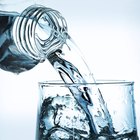
The Best Fluids to Drink With COPD
How Much Water Should I Drink While ...
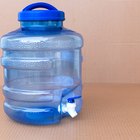
How to Purify Water With Hydrogen ...

Fruit & Water Diet
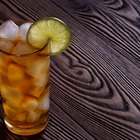
How to Detox From Diet Coke

What Is the Function of the Amniotic ...
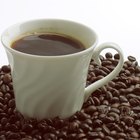
How to Take Vitamins With Coffee
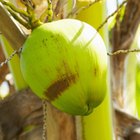
Health Advantages of Coconut Water

Dehydrated Fruits & Vegetables ...
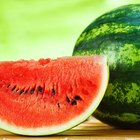
List of Foods With a High Water Content
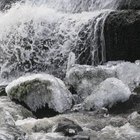
How to Remove Acne Scars With Water

Why Do My Upper Lips Get Chapped With ...
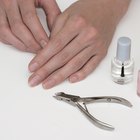
What Does it Mean When the White Part ...
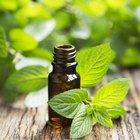
Calories in Peppermint Extract

How to Comfort a Friend Whose Mother ...
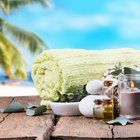
The Benefits of Castor Oil Packs
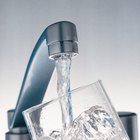
How Is Dasani Water Purified?
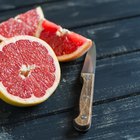
What Are the Benefits of Grapefruit for ...
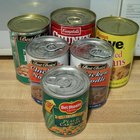
LDS Food Storage Recommendations

Metamucil Dosage for Cats
References
Writer Bio
Anne Tourney specializes in health and nutrition topics. She is a registered nurse with experience in medical-surgical nursing, behavioral health and geriatrics. Tourney earned a Bachelor of Science in nursing from Regis University.
Photo Credits
Noel Hendrickson/Blend Images/Getty Images